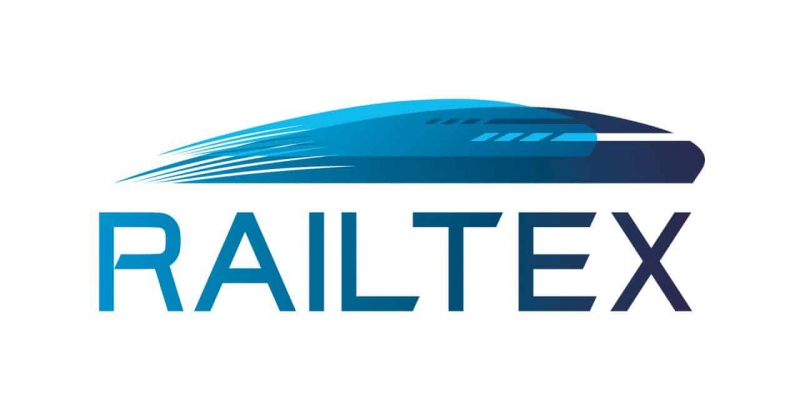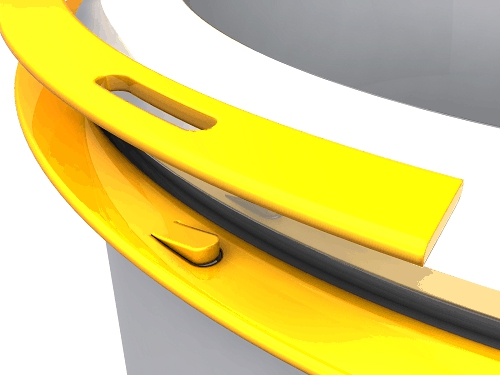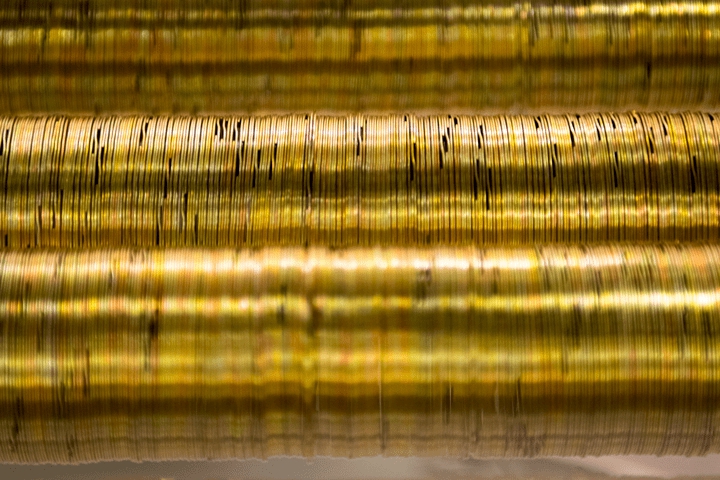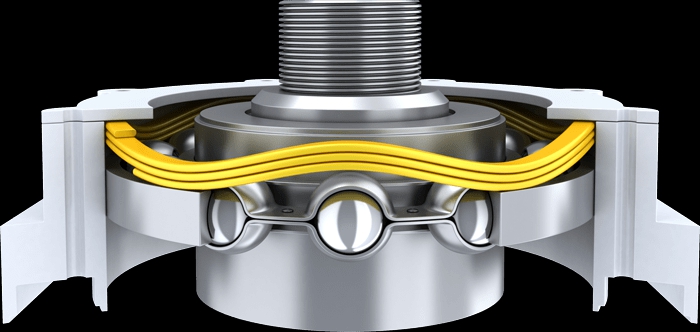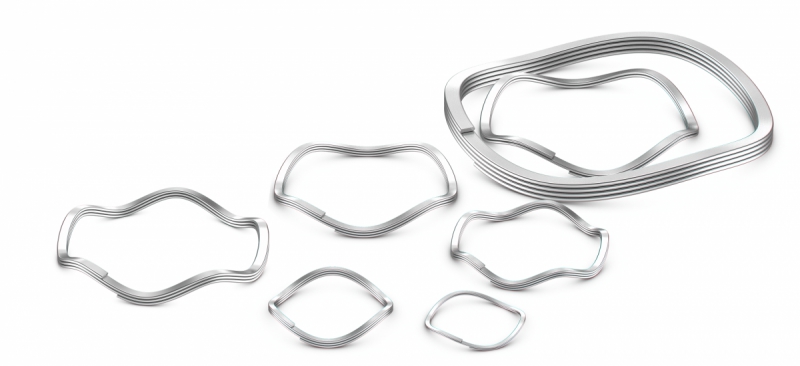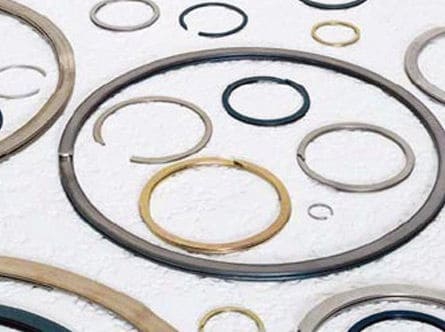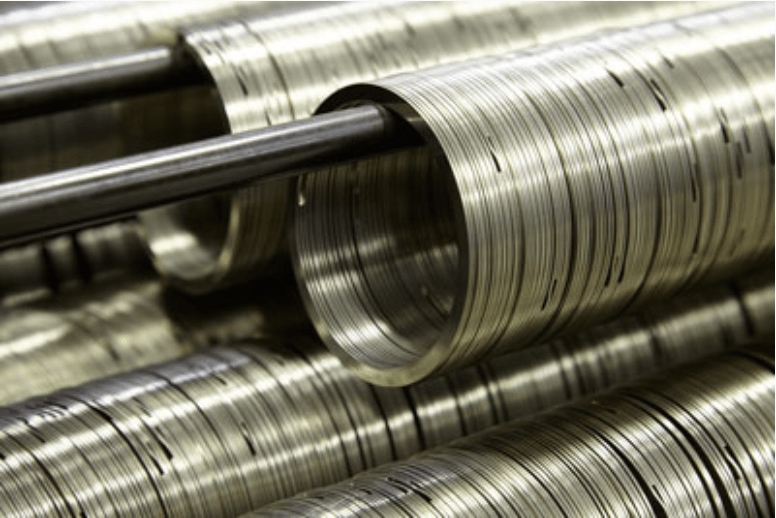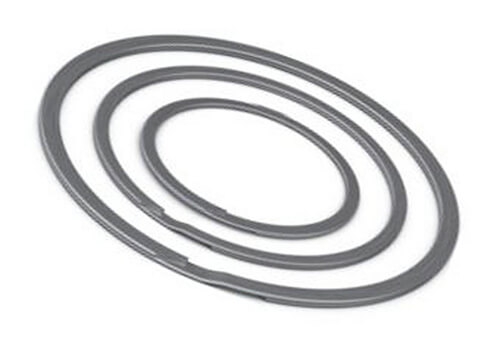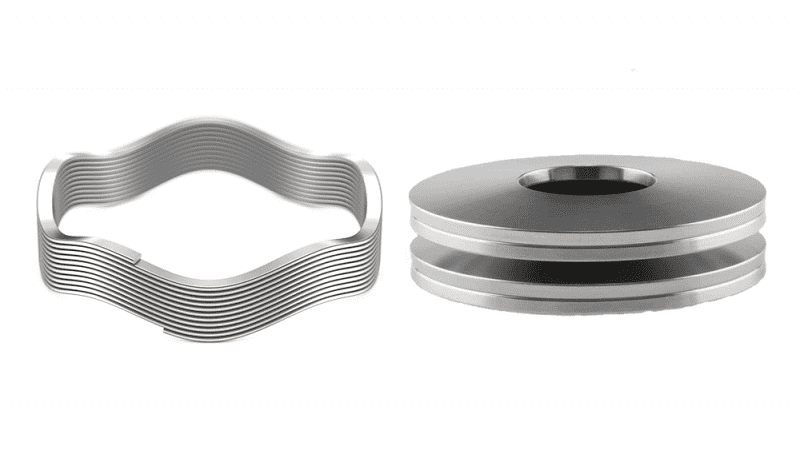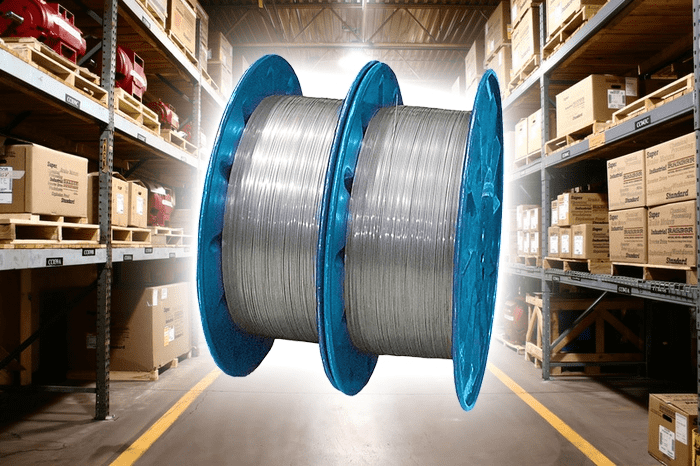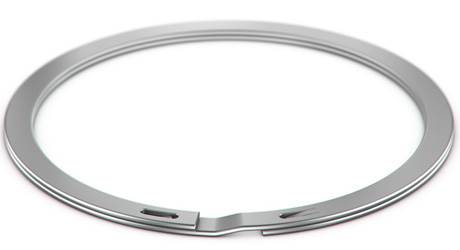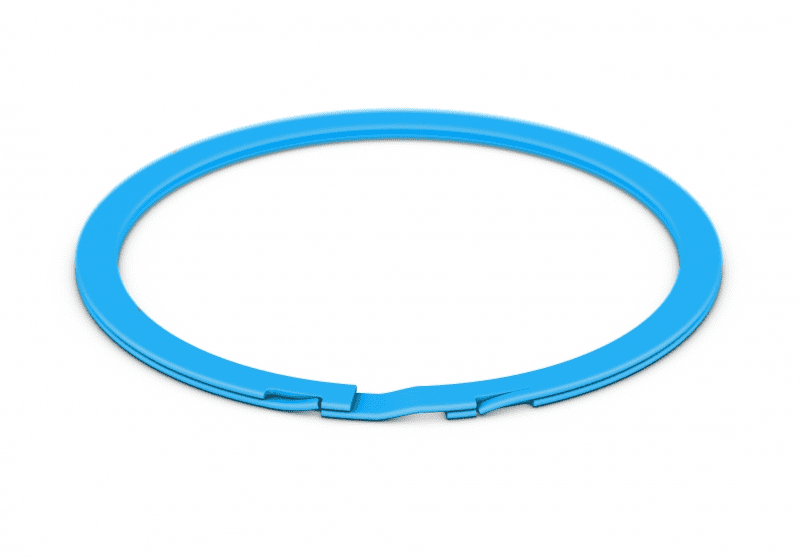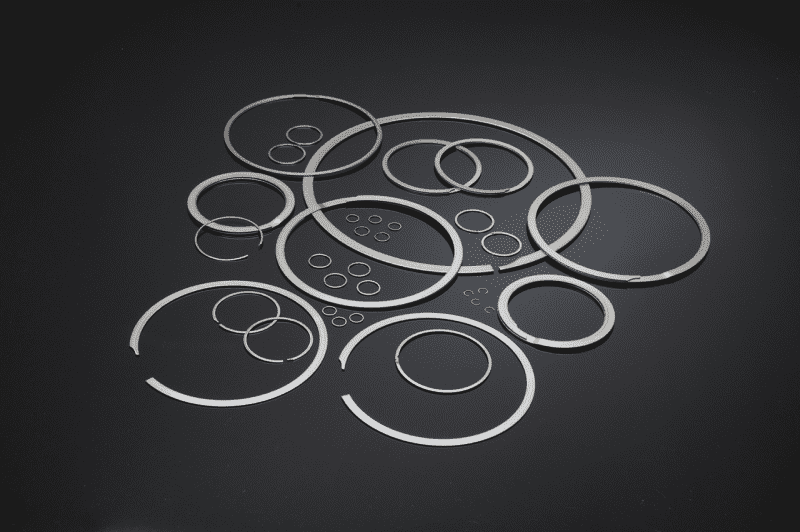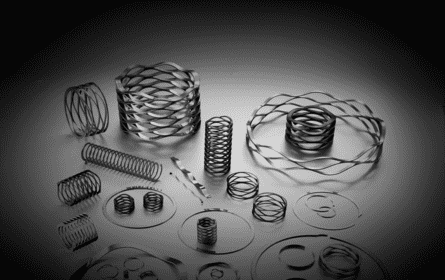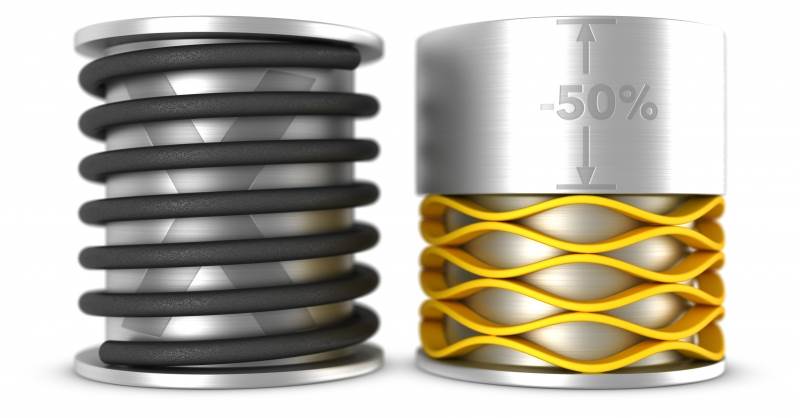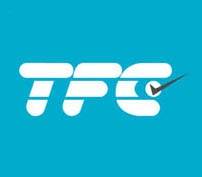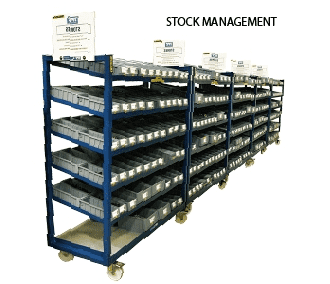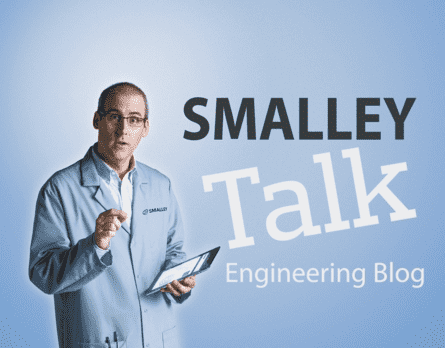- Contact 0870 350 7767
- |
- Advertise
Application Spotlight: Wave Springs for Bearing Preload
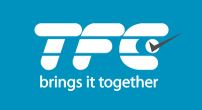 News and PR from TFC Ltd - Published 14 March 2019
What is bearing preload?
When assembling individual bearing components, the outer race, inner race, balls, and retainer all work together so that there is a controlled amount of internal clearance be
News and PR from TFC Ltd - Published 14 March 2019
What is bearing preload?
When assembling individual bearing components, the outer race, inner race, balls, and retainer all work together so that there is a controlled amount of internal clearance beThere are two types of bearing preload: fixed and spring. In fixed bearing preload, the position of the inner and outer races of each bearing is mechanically fixed using either a dead weight (adhesive based) or through building in an axial adjustment that puts pressure on the bearings. Spring loading provides a constant load that can accommodate slight misalignments and is less expensive than fixed preloading.
Why is it important?
Benefits of preloading a bearing include:-
 Extends bearing lifespan
 Elimination of ball skidding
 Vibration reduction
 Noise reduction
 Precise shaft positioning
 Greater load sharing between bearings
 Rotational accuracy
 Control and reduction of axial and
radial deflection under applied load
Why use a wave spring for bearing preload?
A wave spring can provide all the benefits of spring preloading while also taking up dimensional variation from thermal expansion or cyclic loading. we can offer many types of wave springs for the enormous range of applications across many industries.
Which wave spring should I choose for my application?
Every application is unique, which makes selecting the proper wave spring very important. We have a standard bearing preload wave spring series (SSB), designed for popular bearing sizes. It should be noted that overall tolerances will be a very important factor as placing too much preload on the bearing can reduce longevity, while too little can cause higher noise output in high vibration systems.
Correct material selection will also be vital, as the incorrect material choice can lead to failure in operation. While we wave springs are stocked in both Carbon Steel and 17-7 Stainless Steel, we are able to offer wave springs in a variety of alloys to meet your applicationÂs operating conditions.
For more information, reference our materials page. If you do not see a material you are looking for, please contact Smalley Engineering.
What if I have more questions or do not see a standard that fits?
If one of our standard parts doesnÂt work for you, we can help design a custom spring for your preload needs. Standard or custom, our engineers are available to help you choose the best part for your application.
Other announcements from TFC Ltd
-
RAILTEX 2019
In our industry, its vital to keep moving forward; to constantly innovate and to allow your clients and customers to do the same.
13 May 2019
-
Application Spotlight: Self-Locking Rings in Automotive Applications
TFC offers an array of standard retaining rings for different automotive applications. Selecting the appropriate ring requires an understanding of the application requirements, which includes thrust load, groove dimensions, and many others. If your application rotates at high speeds, the rotational capacity of the retaining ring will be important to consider.
05 Apr 2019
-
Our Finishes for Retaining Rings and Wave Springs
Whether you need added corrosion resistance or simply want to change the appearance of your part, we can offer a wide range of finishing processes to ensure that your retaining rings and springs perform the way that they need to in your application. Below is a list of some of the more common choices that we have available.
01 Mar 2019
-
Applications Nested Spirawave® Wave Springs
Our new Nested Spirawave® Wave Springs can be used in applications across many different industries. They are used to replace a stack of single-turn wave springs or when a single-turn spring cannot produce the forces necessary within an application. Below are just a few examples of how nested springs can be used.
08 Feb 2019
-
Introducing our newest Wave Spring Series: Nested Spirawave® Springs!
We are proud to announce the first standard line of nested wave springs on the market. They will now be available from stock in carbon and 17-7 PH stainless steel from .500 to 4″ or 16 to 100 mm. View the new range.
25 Jan 2019
-
Colour variations in materials
Smalley retaining rings and wave springs can be manufactured in many different types of alloys. Each of these materials has specific properties which make them appropriate for use.
06 Dec 2018
-
Which Exotic Alloy is right for your application?
This week, our experts field some questions about material selection and how to know which exotic alloy to use in your application.
11 Oct 2018
-
Product Spotlight: Smalley Internal Retaining Rings
Internal retaining rings act as a removable shoulder within a bore/housing.
01 Oct 2018
-
Three reasons why Wave Springs are a great alternative to Disc Springs
Disc Springs, also known as Belleville Washers, along with die-stamped Wave Washers, are commonly used in high load engineering applications such as clutches and valves. However there are some major problems involved in their manufacture that makes TFC's Smalley Wave Springs a preferred choice for some engineers.
13 Aug 2018
-
Material Update for Our Smalley Products!
Industrial Grade MP35N has recently been added to the expansive list of materials with which our Smalley flat wire products can be manufactured. This unique material was added because its superior strength and corrosion resistance make it an ideal option for our Aerospace, Medical and Petro-Chem customers.
26 Jul 2018
-
Smalley Self-Locking Rings Product Spotlight
Our familiar and popular Smalley Spirolox® Retaining Rings can also be manufactured with a unique self-locking feature that make them ideal for applications where high rotational speeds are involved or, where the effects of vibration, rapid acceleration or impact loading is problematic.
06 Jul 2018
-
High-Speed Electric Motor Demands Superior Retaining Ring Products
Our engineers were faced with a problem when asked by one of our leading automotive electric motor OEM's to supply a 33mm external retaining ring capable of withstanding rotational speeds in excess of 17,000 rpm.
19 Jun 2018
-
-
FAQ: TFC's Smalley Ring & Spring Products
Frequently asked questions on TFC's Smalley parts.
06 Mar 2018
-
Wave Springs FAQ
Frequently asked questions about Smalley Wave Springs Compared with a helical coil spring with the same deflection, can Wave Springs offer the same load level or higher? Yes, the load at a given operating height is determined by several factors such as material thickness, number of waves and the number of turns (coils). These factors can be modified to provide a spring with a higher spring rate or one that functions similarly to a helical coil spring. Our technical sales team can provide assistance to help identify the correct wave spring for your application.
26 Jan 2018
-
Why should I consider using ARaymond Quick Connectors?
ARaymond Quick Connectors simplify assembly operations because of their simple operation and their accessibility.
17 Nov 2017
-
Need to reduce your material handling costs?
We can help you gain control and accountability of your stores.
17 Nov 2017
-
What's the difference between internal and external Spirolox retaining rings?
Welcome back to Smalley Talk, where our engineers answer commonly asked retaining ring and wave spring design questions.
28 Feb 2017
-
The Smallest Wave Springs on the Market
TFC have been the leading European supplier of Smalley spring products for almost 40 years...
28 Feb 2017





